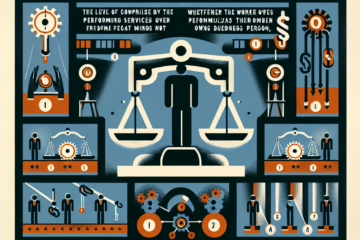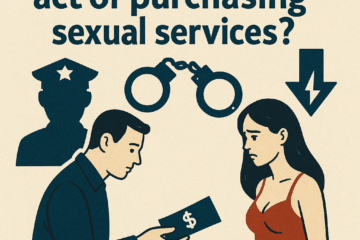Shoplifting, legally recognized as theft, is a criminal offense in British Columbia (BC) governed by the Criminal Code of Canada. This act involves taking or attempting to take merchandise from a retail establishment without payment, with the intent to permanently deprive the owner of the item.
Table of contents
Legal Classification of Shoplifting
In BC, shoplifting offenses are categorized based on the value of the stolen goods:
- Theft Under $5,000: This is a hybrid offense, meaning the Crown prosecutor can choose to proceed either summarily or by indictment. Typically, for first-time offenders and less severe cases, the summary route is chosen, which carries lighter penalties. Government of British Columbia
- Theft Over $5,000: This is an indictable offense, considered more serious, and carries harsher penalties. Government of British Columbia
Potential Penalties
The penalties for shoplifting in BC depend on the offense’s classification and the case’s specifics:
- Theft Under $5,000:
- Summary Conviction: Up to six months in jail and/or a fine of up to $5,000.
- Indictable Conviction: Up to two years imprisonment. Government of British Columbia
- Theft Over $5,000: Up to 10 years imprisonment. Government of British Columbia
First-time offenders may be eligible for alternative measures, such as diversion programs, which can result in the charge being stayed upon successful completion, thereby avoiding a criminal record.
Legal Process
Upon being charged with shoplifting, the accused will receive a court date and may be required to attend fingerprinting. It’s advisable to consult with a criminal defense lawyer to explore options like negotiating with Crown Counsel or participating in diversion programs to potentially have the charge withdrawn.
Impact of a Conviction
A shoplifting conviction can have lasting consequences, including a criminal record that may affect employment opportunities, travel, and personal reputation. Given the seriousness of these implications, seeking legal counsel is crucial to navigate the legal system effectively and mitigate potential repercussions.
Conclusion
While shoplifting might appear to be a minor offense, it carries significant legal consequences in British Columbia. Understanding the legal framework and potential penalties is essential for anyone facing such charges. Engaging with a knowledgeable criminal defense lawyer can provide guidance and support through the legal process, aiming for the most favorable outcome.
FAQs About Shoplifting and Criminal Law
- What is shoplifting? Shoplifting is the act of taking merchandise from a store without paying for it.
- Is shoplifting considered a crime? Yes, shoplifting is a theft offense under criminal law.
- What are the penalties for shoplifting in British Columbia? Penalties range from fines to imprisonment, depending on the value of the stolen goods.
- What is the difference between theft under $5,000 and theft over $5,000? Theft under $5,000 is generally less severe, with lighter penalties compared to theft over $5,000.
- Can shoplifting result in a criminal record? Yes, a conviction can lead to a criminal record.
- What are the legal defenses against shoplifting charges? Defenses include lack of intent, mistaken identity, or accidental actions.
- Can minors be charged with shoplifting? Yes, but the legal process may differ for minors, often involving youth court.
- What is a diversion program? A program that allows first-time offenders to avoid a criminal record by completing specified requirements.
- Do I need a lawyer if charged with shoplifting? Yes, consulting a lawyer is recommended to explore your legal options.
- Can I be detained by store security for shoplifting? Yes, but they must follow lawful procedures.
- What is the role of intent in a shoplifting charge? The prosecution must prove intent to permanently deprive the store of the item.
- Can shoplifting charges be dropped? Charges can be dropped if there is insufficient evidence or through negotiation with the Crown.
- What happens if I accidentally walk out without paying? If it is proven accidental, you may avoid criminal charges.
- Can shoplifting affect my immigration status in Canada? Yes, a criminal conviction may impact immigration applications.
- What are the alternatives to prosecution for shoplifting? Alternatives include warnings, diversion programs, or restitution agreements.
- Can I travel internationally with a shoplifting conviction? A conviction may restrict travel to certain countries.
- How can I clear a shoplifting charge from my record? You may apply for a record suspension (pardon) after meeting eligibility requirements.
- Can a store sue me for shoplifting? Stores can pursue civil claims for damages alongside criminal charges.
- What should I do if falsely accused of shoplifting? Remain calm, cooperate, and seek legal assistance to dispute the claim.
- What is the statute of limitations for shoplifting charges? It varies by jurisdiction and case specifics but is typically a few years.
- Can shoplifting charges appear in a background check? Yes, if you are convicted or charged, it may show up on your record.
- Can I represent myself in a shoplifting case? While possible, it is advisable to hire a lawyer for better outcomes.
- How does shoplifting impact my reputation? A conviction can harm personal and professional relationships.
- What happens at a shoplifting trial? The court examines evidence, witnesses, and legal arguments to determine guilt.
- Can shoplifting charges lead to imprisonment? Yes, especially for repeat offenders or high-value thefts.
- What are my rights if arrested for shoplifting? You have the right to remain silent and seek legal counsel.
- Can shoplifting charges affect my employment? Yes, a criminal record can impact job prospects.
- Are security cameras admissible as evidence in shoplifting cases? Yes, footage is often used as evidence in court.
- What is a hybrid offense in shoplifting cases? Theft under $5,000 is a hybrid offense, allowing prosecution as a summary or indictable offense.
- Can I apologize to avoid charges? While an apology may help in some cases, it does not guarantee the charges will be dropped.



0 Comments